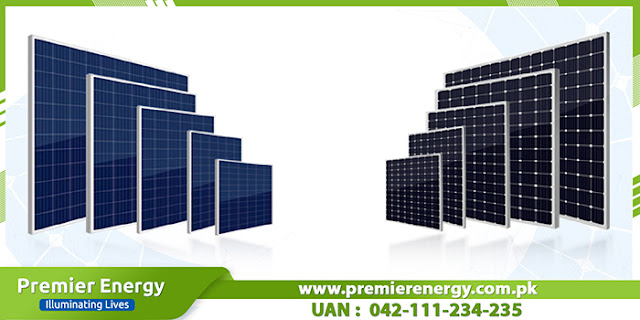Do Solar Panels Need Direct Sunlight or Not?
There are numerous circumstances wherein solar panels may not get direct sunlight. They might be covered by shade from encompassing structures or trees, are at some distance from the sun, or just influenced by climate conditions like mists, downpours, or snow. What happens when solar panels - otherwise called photovoltaic (PV) modules - don't get direct sunlight? What's more, what amount of importance would it be a good idea for you to put on shade and climate conditions when choosing if you ought to get solar panels?
Do Solar Panels Require Direct Sunlight?
Solar
panels work best in direct sunlight, however, can likewise work without it.
Solar panels produce power utilizing a mix of direct and indirect sunlight. The
two types of sunlight convey photons, which is how the Solar
Panels produce electric current. On the off chance that there is no
direct sunlight accessible, solar panels will deliver power utilizing indirect
sunlight alone. There will, nonetheless, be a drop in execution without direct
sunlight. That is on the grounds that solar panels need 1000 W/m2 of sunlight
to arrive at their peak yield; that much sunlight must be accomplished when
there is direct sunlight.
Do Solar Panels Work in The Shade?
Indeed,
solar panels can work in the shade, yet they will create less electric current
than they would under ideal conditions. The specific effect of concealing on
your solar force framework relies upon these components.
The Duration of the Shade
The
more extended your solar panels are under shade, the greater the drop in power
creation. Remember that sunlight and shade levels will shift every day because
of the continually changing way of the sun's direction.
The Tech Utilized In the Solar Panels
Newer
solar panels that utilize half-cut photovoltaic cell innovation are intended to
lessen the effect of fractional shade. In any case, this isn't the situation
with standard solar panels (for example those that don't utilize half-cut PV
cells).
Inverter Arrangement
If a
string inverter is utilized, shade on a solitary board will diminish power
yield for the whole solar system. Paradoxically, with systems utilizing MLPEs -
micro-inverters or DC power enhancers - shade on a single panel does not affect
other panels and causes just a minor decrease in the measure of energy
delivered. On the off chance that you intend to introduce solar panels, you
should initially decide how much shade there will be on your rooftop. In the
event that you expect limited shade, control the reduction in productivity by
introducing solar panels that use half-cut solar cells and that are associated
with MLPEs. An expert solar installer can audit how much shade a specific
rooftop area will get throughout the year, just as assist you with ascertaining
solar panel yield and your solar payback period dependent on that.
Climate Conditions
They
can likewise affect sunlight accessibility. Climate conditions can immensely
affect solar board creation. Smog, rainstorm, and snow can diminish both direct
and indirect sunlight, hampering solar power production.
Do Solar Panels Deal With Overcast Days?
Indeed,
solar panels take care of the job on shady days — yet not as successfully as
they would on a sunny day. That is on the grounds that fogs block a portion of
the sun's energy from arriving at the ground (or for this situation, your
rooftop). Under cloudy conditions, your solar panels will create anyplace
somewhere in the range of 10% and 60% of their ordinary power supply,
contingent upon how thick the overcast is.
Do Solar Panels Work in The Rain?
The
rain itself doesn't influence solar panel production, however, the substantial
clouds with rain do. At the point when raindrops are obstructing sunlight and
obscuring the sky, system yield will be 40–90% lower. Notwithstanding that,
however, rain can cause temporary production losses, rain really has a positive
result: it helps with cleaning the solar panels. In the event that you live in
a dusty environment, the rain will help increase production afterward.
Do Solar Panels Work When It Snows?
Indeed,
solar panels do deliver power in wintry conditions - as long as the snow isn't
excessively substantial. Sunlight can go through a light layer of snow, so your
solar panel system will create solar power during a light snowfall. What's
more, the winter climate is, in reality, useful for solar panels, as it keeps
them from getting excessively heated and losing efficiency. A substantial
amassing of snow, then again, would obstruct sunlight and enormously diminish
energy creation. Fortunately, it is not very common and solar panels are
incredible at shedding snow. This is on the grounds that they are smooth, warm
up as they assimilate heat, and are normally introduced at an angle so the snow
melts down.
What Amount Of Sunlight Do Solar Panels Need To Be Economically Beneficial?
The
overall dependable guideline is that a normal of four peak sun hours out of
each day is sufficient sunlight to make a Solar System
beneficial. Four peak hours is equivalent to 4000 watt-long periods of combined
solar radiation longer than a day. In any case, the measure of sunlight isn't
the possible factor owners ought to think about while assessing the expense
viability of solar. You'll likewise need to consider the utility rates. The
higher your utility rates, the higher you will save from solar. So you must Go
Solar as it is without a doubt the most beneficial investment.




Comments
Post a Comment